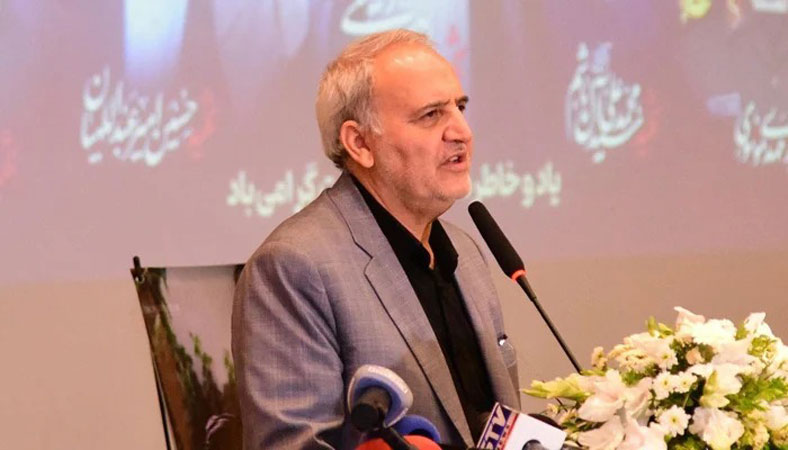Pakistan’s Stance on Iranian Ambassador Amid FBI Involvement
Pakistan has taken a firm position in support of its Iranian ambassador, Reza Amiri Moghadam, following his inclusion on the US Federal Bureau of Investigation’s (FBI) “most wanted” list. The move by the FBI is based on allegations that Moghadam was involved in the 2007 disappearance of Robert Levinson, a retired FBI agent who went missing after traveling to Iran’s Kish Island.
In a statement released by the Foreign Office, spokesperson Shafqat Ali Khan emphasized that Ambassador Moghadam is highly respected in Pakistan and serves as a legitimate envoy from a neighboring country. The statement also highlighted the envoy’s significant contributions to fostering Pakistan-Iran bilateral relations. It reaffirmed Islamabad’s commitment to maintaining strong and friendly ties with Tehran, regardless of the circumstances surrounding the ambassador.
“The ambassador of Iran is widely respected for his role in promoting Pakistan-Iran relations,” the spokesperson stated. “He is entitled to all the privileges, immunities, and respect due to an ambassador, especially from a friendly neighboring country.”
The FBI’s decision to add Moghadam to its most wanted list comes amid ongoing investigations into the fate of Robert Levinson, who has not been seen publicly since 2007. His family believes he died in Iranian custody, according to U.S. intelligence assessments. The FBI claims that Moghadam, an official from Iran’s Ministry of Intelligence and Security, was designated by the U.S. Department of the Treasury in March 2025 for his alleged involvement in the incident.
To encourage information leading to Levinson’s recovery, the FBI has offered a reward of up to $5 million, while the U.S. State Department’s Rewards for Justice Programme has announced an additional $20 million for relevant leads.
This development follows increased tensions between the U.S. and Iran, particularly after the 12-day conflict between Iran and Israel. The situation has led to renewed diplomatic efforts regarding Iran’s nuclear program. The U.S. and its European allies have set an end-of-August deadline to negotiate a new nuclear deal with Tehran. If no agreement is reached by this date, they plan to activate the “snapback” mechanism, which would reinstate all UN Security Council sanctions previously lifted under the 2015 Iran nuclear deal.
Senator Jim Risch, Chairman of the Senate Foreign Relations Committee, praised the FBI’s actions, stating that it is taking the lead in holding Iran accountable for the abduction of Robert Levinson, a dedicated father and patriotic American. He added that the U.S. will never forget Levinson or his family and will ensure those responsible face justice for their crimes.
The recent developments also come in the wake of U.S. military actions against Iran’s nuclear sites. U.S. Secretary of State Marco Rubio, along with foreign ministers from France, Germany, and the UK, have agreed to use the end of August as a key deadline for reaching a nuclear deal with Iran. Should no agreement be reached, these European countries plan to trigger the snapback mechanism, which would automatically reinstate all previous UN sanctions.
These events underscore the complex geopolitical landscape involving the U.S., Iran, and its regional allies. As the international community watches closely, the outcome of these negotiations could significantly impact global security and diplomatic relations in the Middle East.







